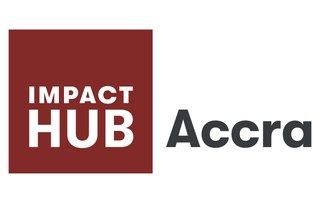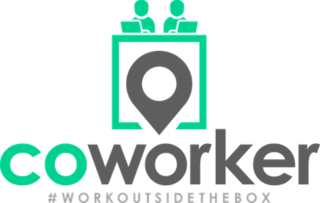
The Meltwater Entrepreneurial School of Technology (MEST) is an Africa-wide technology entrepreneur training program, seed fund, and incubator headquartered in Accra, Ghana. The three-phased institution was founded in 2008 to provide training, investment, and mentoring for aspiring technology entrepreneurs with the goal of creating globally successful companies that create wealth and jobs locally in Africa.
iHub is an Innovation hub and hacker space for the technology community in Nairobi. It was started in March 2010 by Erik Hersman, a blogger, TED fellow, and entrepreneur and acquired by Co-creation Hub (CcHUB) in 2019. This coworking space, in Senteu Plaza at the junction of Lenana and Galana Roads, is a nexus for technologists, investors, young entrepreneurs, designers, researchers and programmers.
The TUMO Center for Creative Technologies is a free-of-charge education program for teenagers aged 12–18 specializing in technology and design, with education being provided at various TUMO centers and hubs.
HiveColab is an innovation hub and startup incubator in Kampala, Uganda. The space was founded in 2010 and is noted as being one of Africa's first innovation hubs of note along with the IHub. HiveColab was founded by African technologist and Appfrica CEO Jon Gosier, Senegalese Born, British Businesswoman Marieme Jamme, Daniel Stern, Teddy Ruge and supported by Director Barbara Birungi. The space is funded by Appfrica, IndigoTrust and Dutch NGO Hivos. HiveColab is one of the founding members of Afrilabs a network of African innovation hubs across the continent. Barbara Birungi has stated she's passionate about how technology can change the future of Africa, for women in particular.
The Indigo Trust is a UK-based grant-making foundation operating from London and is one of the organizations that makes up the Sainsbury Family Charitable Trusts. It funds technology-driven projects to bring about social change, largely in African countries.

Silicon Mountain is a nickname coined to represent the technology ecosystem (cluster) in the Mountain area of Cameroon, with its epicenter in Buea. The name refers to Mount Fako. Silicon Mountain is currently home to tech startups and a growing community of developers, designers, business professionals as well as universities such as the University of Buea, Catholic University Institute of Buea, Saint Monica University and many others. This region occupies the entire Fako Division of the South West Region of Cameroon. The phrase originally was the de facto reference to the Buea Tech Community popularized during local tech community meetups such as BarCamp Cameroon 2013, Google I/O Extended Buea 2015 and the Kamer Design Meetups; but has eventually come to refer to the community of developers, creatives, organizers, business professionals, universities in the area.

Impact Hub Accra is a co-working space located in Accra, Ghana. The hub recently joined the Impact Hub through the Africa Seed Program. Impact Hub Accra main mission is to support inclusive growth in Ghana through the creation of a social innovation ecosystem by developing programs, providing workspace, access to capital and connecting entrepreneurs focused on solutions to regional challenges. Impact Hub Accra is seeking to build a globally integrated entrepreneurial community that promotes high impact developments in West Africa.
Co-Creation Hub, commonly referred to as Cc-HUB or the HUB, is a technology-oriented centre located in Yaba, a district of Lagos. Founded in 2010 by Bosun Tijani and Femi Longe, it provides a platform where technology-oriented people share ideas to solving social problems in Nigeria.
BioCurious is a community biology laboratory and nonprofit organization located in Sunnyvale, California, co-founded by Eri Gentry, Kristina Hathaway, Josh Perfetto, Raymond McCauley, Joseph Jackson, and Tito Jankowski. With the help of Kickstarter and 239 backers they raised $35,319. BioCurious is a complete working laboratory and technical library for entrepreneurs to access equipment, materials, and co-working space, and a meeting place for citizen scientists, hobbyists, activists, and students. Scientific American magazine has described BioCurious as "one of country’s premier community biotechnology labs [...]".

Coworker is an online marketplace and access solution for discovering and booking coworking spaces and flexible offices around the world. It was founded in 2015 by Leanne Beesley and current president Sam Marks. The company has offices in the United States, Canada, Spain, and Thailand, with its registration in the United States. By 2021, the company recorded 18,500 coworking spaces in 172 countries in its network.
Tenity is a startup incubator, accelerator and early-stage VC founded in 2016 in Zürich focused primarily on Fintech, Insurtech, Regtech and Deeptech. It provides incubation and acceleration programs helping startups to connect with corporates, experts, mentors, and investors for early stage venture and late stage venture investing, and collaboration opportunities. The company currently has operating hubs in Zürich, Singapore, Madrid, and Tallinn.
Technology Hub is a bi-national startup accelerator and business incubator in the El Paso–Juárez area on the border of Mexico and the United States. It was founded in 2015 and is a Mexico National Institute for Entrepreneurship-certified incubator that has developed and housed 100 high-growth technology companies.
Olatunbosun Tijani is a Nigerian-British entrepreneur who is the current Nigerian minister of Communications, Innovation and Digital Economy, since 2023.

Chukwuemeka Fred Agbata Jnr. also known as CFA is a Nigerian journalist and a former television presenter at Channels TV. He is into digital marketing and known as a technology entrepreneur with focus on business coaching and public speaking. He hosted the first virtual telehealth conference of Nigeria’s telemedicine company, CareClick with the theme ‘The Future Of Healthcare Today’ on 24 September 2020. He was involved in various ICT-related companies that contributed to the development of the Founder Institute. He is known as the founder of Pacer Venture and has links with Climate Action Africa. He is the MD/CEO of Anambra State ICT Agency.
Dogpatch Labs is a startup and innovation hub situated in the Silicon Docks area of Dublin. The company's headquarters are located in the CHQ building. Dogpatch Labs consists of over 500 members from 100+ startups.

The Ion District, Ion Innovation District, or Rice Innovation District, is a technology park and innovation district in Midtown Houston which was established as a joint initiative between Rice University and the City of Houston. It has also been called the South Main Innovation District. The district's central hub and first building is the Ion, which opened in 2021 after owner Rice Management Company (RMC) converted it from a former Sears store. The building houses coworking and office spaces, business incubators and accelerators, classrooms, a prototyping lab, investor studio, and restaurants. Current tenants include Chevron Technology Ventures, Microsoft, and Liongard. The district also includes Greentown Labs Houston, a business incubator focused on climate technology and sustainable energy, and a large outdoor plaza.
Hugging Face, Inc. is an American company incorporated under the Delaware General Corporation Law and based in New York City that develops computation tools for building applications using machine learning. It is most notable for its transformers library built for natural language processing applications and its platform that allows users to share machine learning models and datasets and showcase their work.

CIIE.CO is an Indian startup accelerator and incubator that supports early-stage startups located at IIM Ahmedabad in Ahmedabad, India. It was founded in 2002 to promote innovation and entrepreneurship in India. It is a Center of excellence set up at Indian Institute of Management Ahmedabad with support from the Government of India's Department of Science and Technology and the Government of Gujarat.
FinTech Association of Sri Lanka (FASL) is an independent, not-for-profit cross-industry organisation representing Sri Lankan and the global FinTech community to support the development, innovation and investment in the FinTech sector.
Climate Action Africa commonly referred to as CMA is a climate resilience organization located at GRA Ikeja, Lagos. It was founded on July 14, 2021, by Grace Oluchi Mbah and Chukwuemeka Fred Agbata. It provides a platform for climate consciousness with data resources to support policies on evidence-based climate issues in Africa. In April 2024, Climate Action Africa formerly known as CMA announced its change of acronym to CAA. This was announced in a climate workshop in Awka, Anambra State, Nigeria.







